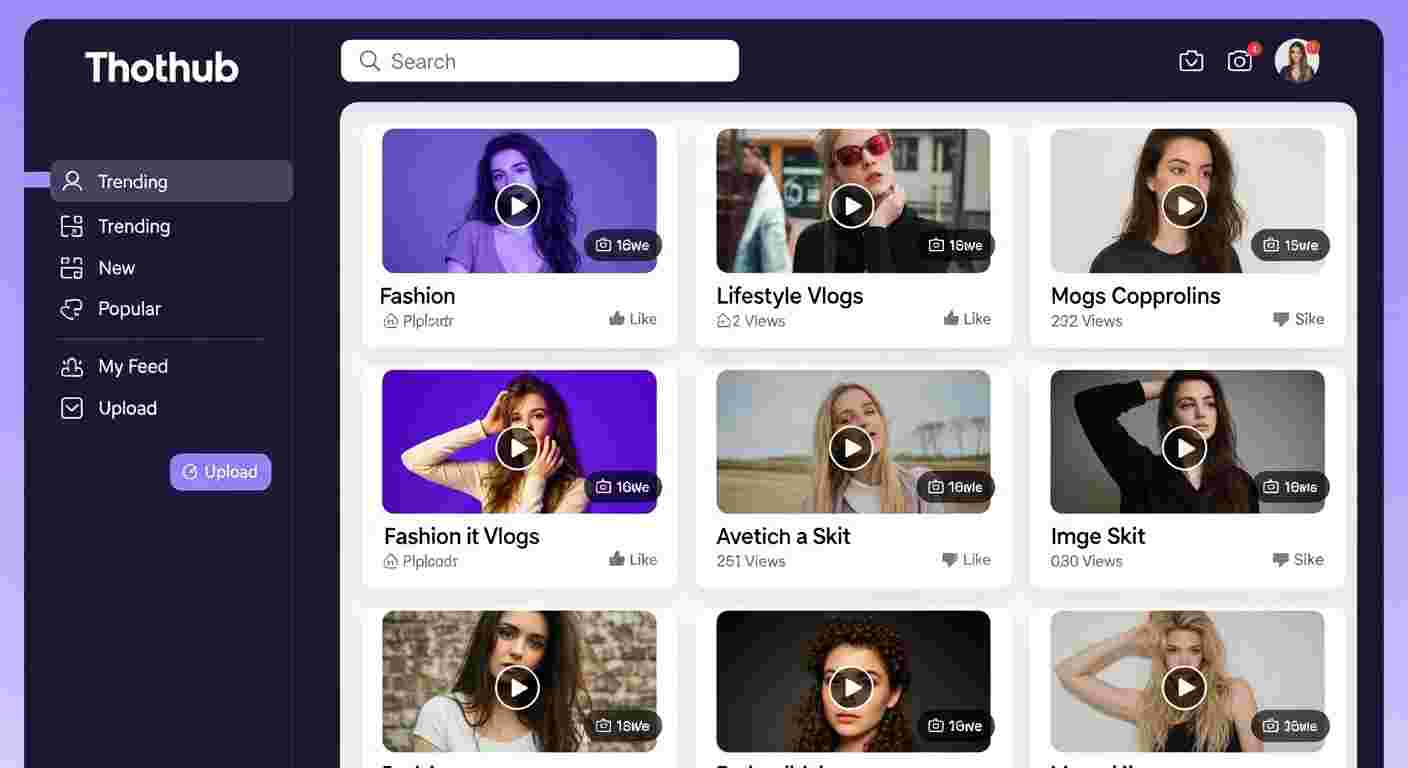Introduction
The rise and fall of Thothub left a lasting mark on the internet and the way people think about privacy, content sharing, and digital responsibility. Once seen as just another platform for sharing content, Thothub became notorious for allowing the distribution of material without consent. Its shutdown forced both creators and users to reconsider the way they navigate the online world. While the website is gone, the lessons it taught continue to shape the digital landscape today.
A Wake-Up Call for Online Privacy
Before Thothub, many internet users didn’t think much about privacy. People shared personal content freely, often assuming it would remain within a limited audience. Thothub showed how quickly content can escape its intended boundaries. Once material is online, it can spread to millions of people in a short time. This realization prompted a broader conversation about online privacy, not just for content creators but for all internet users. People became more cautious about what they post, where they post it, and who can access it.
Platforms also felt the pressure to improve privacy protections. Social media sites, content platforms, and cloud services began introducing stronger controls, such as better account security, two-factor authentication, and clearer privacy policies. The internet after Thothub became a place where privacy was no longer an afterthought but a key part of the user experience.
Impact on Content Creators
Thothub’s closure highlighted the vulnerabilities content creators face online. Creators who relied on subscription platforms or paid content distribution realized that even well-intentioned audiences could unintentionally contribute to unauthorized sharing. After the incident, creators became more protective of their work.
Many started watermarking their content or sharing lower-resolution previews instead of full-quality files. Others became more selective about which platforms to use, favoring those with strict moderation, secure payment systems, and robust reporting tools. The internet after Thothub saw creators taking control of their work more seriously, balancing accessibility for audiences with safeguards against leaks.
Legal Awareness and Ethical Responsibility
Another noticeable change was the increased awareness of legal responsibilities. Thothub’s rise exposed the consequences of distributing content without consent, including potential legal action for copyright infringement and privacy violations. Creators and platforms began learning about copyright laws, intellectual property rights, and digital ethics.
Users also became more conscious of their role in the digital ecosystem. Many understood that sharing content without permission isn’t just morally wrong—it’s illegal in many jurisdictions. This shift fostered a more informed online culture, where respecting creators’ rights became part of responsible internet use.
Platforms Becoming More Secure
The internet after Thothub is characterized by a greater emphasis on platform security. Companies recognized that users would lose trust if content could be easily misused. Security measures were strengthened, including automated content monitoring, improved moderation systems, and rapid takedown procedures for unauthorized content.
For example, subscription-based platforms introduced tools to prevent screenshots or downloads, while content-sharing websites enhanced encryption and user verification. These measures weren’t perfect, but they marked a shift toward a more responsible digital environment. Thothub’s legacy, in this sense, is a safer internet for both creators and consumers.
Changing Audience Behavior
Thothub also changed the way audiences consume content. Many people who previously expected free access to paid or private content became more aware of the ethical implications of unauthorized sharing. Fans began supporting creators through proper channels, subscribing to official accounts, and reporting leaks when they saw them.
This shift in audience behavior has helped create a culture of accountability. Users now recognize that their actions online have real consequences for creators’ livelihoods and personal privacy. While not everyone follows these principles, the trend is noticeable across social media and content-sharing platforms.
Rise of Community Support and Education
One of the most positive changes after Thothub has been the rise of community support. Creators now openly share tips and advice on protecting content, monitoring leaks, and navigating digital security. Online communities provide guidance on platform selection, watermarking, secure storage, and legal options.
Education became central to this shift. Both creators and users are learning more about digital risks, ethical sharing, and privacy tools. The internet after Thothub is more informed, not just technologically, but socially. People understand that creating a safe online space is a shared responsibility.
Long-Term Industry Changes
The adult content industry, along with other online content sectors, learned hard lessons from Thothub. Platforms now integrate security and moderation as essential components of their business model rather than optional features. Payment systems, subscription models, and content management tools are designed to protect creators and prevent unauthorized sharing.
Creators, in turn, approach the internet with a mindset that balances accessibility with caution. Monetization strategies now consider potential risks, and content protection is part of every business decision. The digital ecosystem is becoming more professional, ethical, and secure because of the wake-up call that Thothub provided.
Conclusion
The internet after Thothub is not the same as it was before. Privacy awareness, platform security, creator protection, and audience responsibility have all improved as a result of the scandal. While the website itself is gone, the lessons it taught continue to resonate.
Creators are more cautious, users are more informed, and platforms are more accountable. Thothub highlighted the risks of the digital age, but it also encouraged growth, awareness, and progress. In the end, the internet today is a safer, more responsible space because people learned to respect content, privacy, and the value of digital work.
Thothub may have been a dark chapter, but its legacy is a reminder that the internet is a shared space where vigilance, ethics, and protection matter more than ever.




